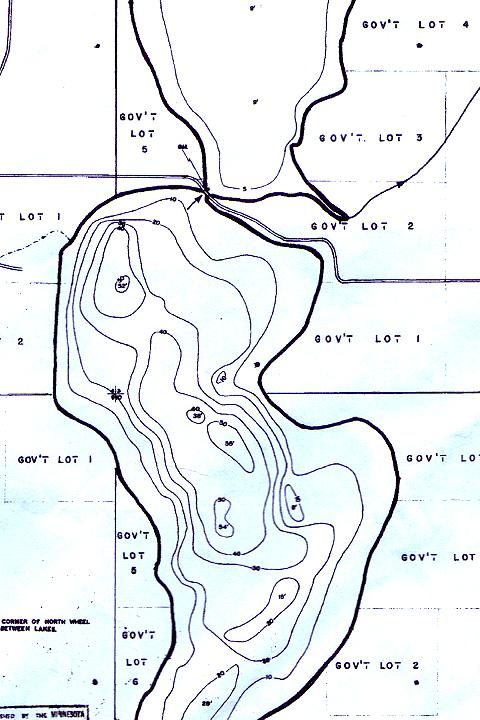Lakes contain a certain level of mystery. When you look out
over a lake there are very few indicators as to what lies below.
A stop at the bait store or boat rental may get you some information,
some of it may even be factual. You will probably hear stories about
the big fish that was caught out by the point or just off the weed
bed yesterday or last week. You may, after asking some questions,
get information as to where to go look for specific species of fish,
though the information will be vague and not to the point.

If, armed with this information, you go out fishing, you will find
that you haven't been told the whole story. Maybe on that specific
day you'll catch fish maybe not, but I know that if you catch fish
on that spot on that day, each time that you return diminishes your
chances of catching fish.
You need to expand your knowledge of the lake. You need to know, if
the fish aren't where you left them where did they go? You need to
be able to develop a plan to find the fish in the shortest amount of time.
By learning to read a lake map you will be able to form a plan as to
how to fish the lake. Maximizing the amount of time that you are
"fishing" and minimizing the time spent "washing flys/lures". Each
time that you return to the lake will be productive time spent ruling
out areas and finding the fish.

My point is that the fish are not in the lake. The lake
is a giant ecosystem that the fish are part of. When
something effects that ecosystem, it effects the entire
system. Now don't think that I am talking about external
effects only. We all know there are plenty of those.
I am talking about the natural effects of the water warming
or cooling. The weed growth as it develops and then dies
back. A big natural effect where I live is the three to
six feet of ice that develops on the lakes. This is as
much a part of the lake as the fish are, so starting now,
start thinking of the lake as one ecosystem and how these
changes are going to effect your fishing.
Through the month of September the discussion on the Monday
Night Warmwater Chat (check schedule for your
local time) will be reading lake maps. If you feel that you have something to
learn, join us. If you feel that you have something to contribute,
join us. You are most cordially invited! (I know where the bass are.)
~ Host Northlander
Publishers Note:
The article begun last week, Early Autumn - Bluegills, will be continued
next week.
|


